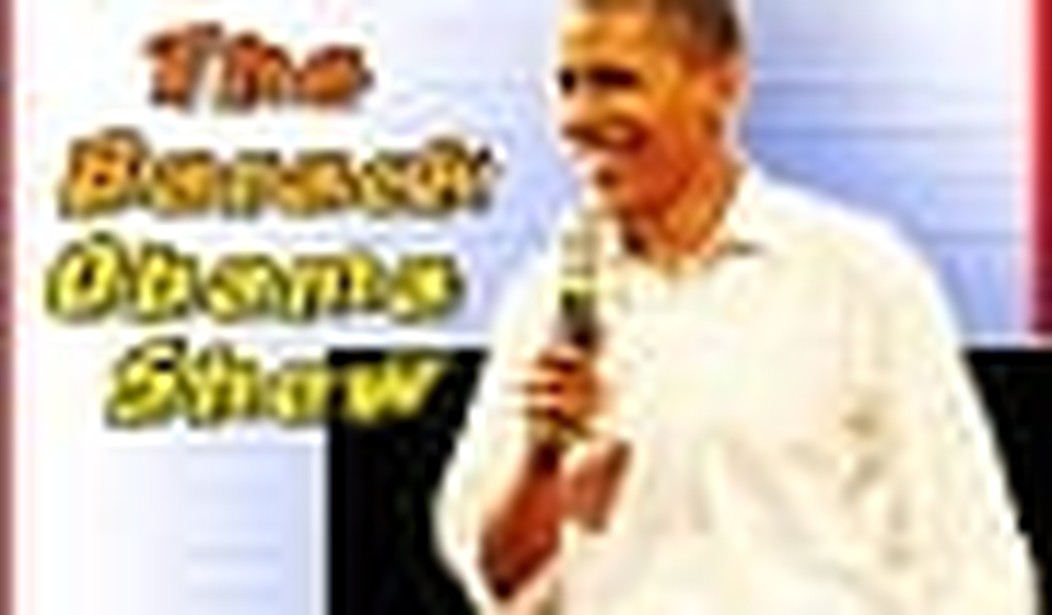Like it or not, TV’s most expensive reality program, The Barack Obama Show, is hitting prime time again for its fourth episode Wednesday night, costing the networks a cool $10 million per hour in combined lost advertising revenue. Lucky them. It’s costing the rest of us a $1.8 trillion budget deficit this year alone.
The Barack Obama Show may be a prime-time mainstay, but like a daytime soap it has a tendency to repeat story lines. We can certainly hope the president will completely surprise us by saying, “I’m going to take a break from proposing any more grand projects for now. What’d everybody think of that guy stealing home in the Red Sox-Yankees game?”
It seems more likely, though, that he’ll fall into his usual habits of trying to sell an increasingly skeptical public on fantastically grandiose schemes using misdirection, twisted logic, straw men, and a simultaneous blend of reassurance and warning — a brand of feel-good alarmism — unique to this presidency. Here’s what to listen for in the latest biggest speech ever, and what those words actually mean:
Ideology. Partisanship. Rigidity. The Past
These are all very bad things, dangerous traps to fall into. Except when we’re talking about rigid, unquestioning fealty to a curious, unproven idea from the past — 1931 — known as Keynesian economics. Which means betting $787 billion of money we don’t have, most of which won’t be spent this year, to fight a recession that most economists think will be over in a few months. With respect to this partisan ideology, we must remain completely silent, not bothering to weigh its proposals to competing ones, before it is signed into law. Retaining some provision for flexibility in the stimulus? That would have been too rigid. And measuring the current plan against history, such as the failed Keynesian stimulus in Japan in the 1990s, would amount to getting stuck in the failed notions of the past.
False tradeoffs
Obama will probably make the point again that anyone who says that more of A means less of B just isn’t using his imagination. Why is he so popular? Who doesn’t like something for nothing? It’s easy to get caught up in the madcap joy of his reasoning. He’s like a toddler making his first trip to Toys R Us whose policy is to grab all he can, as fast as he can, and let somebody else pay. Obama keeps saying that only five percent of our neighbors — the intimidating people we don’t know in the mansion on the hill — will have to pay for anything. And it’s a big anything. It includes unlimited free health care with no pesky worries about all the problems that crop up in socialized meds countries, converting the energy grid to operate on rainbows and smiles, and a first-class education guaranteed to set every girl and boy on a path to becoming a powerful lobbyist/cabinet appointee.
Ultimately
You can stretch this adverb pretty far. Obama knows the economy is America’s chief concern. People want to get back to work. They want stocks to rise. They want credit to flow. None of this has much of a connection with education, energy, or health care, except when you use a limitless elastic concept like “ultimately” or “finally” or “at the end of the day.” Like a car salesman who argues that spending extra money on a precious, invisible, perhaps mythical undercoating is ultimately the key to your car retaining its value over the years, Obama will use the economy to upsell you on hundreds of billions of dollars of new spending.
Hard choices. Tough decisions. Sacrifices
Obama loves to talk about how nothing will be easy. It makes him seem like a serious, thoughtful person. Especially when he says it in that rich, resonant voice. The kind of voice that plays God in whimsical comedy fantasy movies, or tells you at the end of the drug commercial, “Ask your doctor.” But he won’t actually call for the average person to give up anything. The hard choices, in the end, amount to things like: Should we get everything we ever wanted tomorrow or grit our teeth, bear down, and wait till the day after tomorrow?
Responsibility. Accountability
These concepts will be applied exclusively to corporate America and those shadowy individuals in the top five percent who knocked the country off course through over leveraging, thanks to artificially low interest rates and profiting from Ponzi schemes and the greater fool theory. They don’t apply to the government, which is doing all of the same things on a much larger scale and continues not to worry about the biggest Ponzi scheme ever created: Social Security.









Join the conversation as a VIP Member